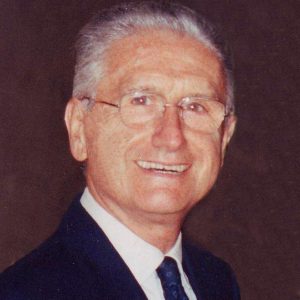Tito Bastianello & MDSF Young Investigator Awards
In Memory of the Late Tito Bastianello

Four awards of 10,000 EUR each
The Tito Bastianello Young Investigator Awards will be presented to the top abstracts during The Best of Abstracts Session on Sunday, September 26, 2021.
Winners will receive an award and will be announced with a silver plaque during the session.
The award is to honor excellent candidates in the four major areas:
- Basic Research
- Translational Research
- Clinical Research
- Treatment
The Scientific Committee will nominate four candidates worthy of receiving the award. Therefore, four Tito Bastianello Young Investigator Awards will be granted at MDS 2021 in Toronto.
Application Criteria
- Applicants must be 40 years old or younger (born after 1979).
- Abstracts must be submitted by the submission deadline of May 11, 2021.
- During abstract review, the committee will shortlist the best abstracts considered for the award.
- Shortlist candidates will be notified by e-mail and will be asked to respond within 3 days.
- Shortlist candidates will be asked to submit further information including proof of age (passport or identity document), CV and letter of recommendation for 2nd stage of review.
In remembrance of Tito Bastianello
Tito Bastianello was born in Venice, Italy, in August 1930.
After graduating in Law, he started working in the family business. In 1958 he went on to establish his own company, founding one of the first chains of supermarkets in Italy. He engaged in social, cultural and non-profit activities, holding important offices and contributing to the development of the many different entities he was involved with.
During his lifetime he was faced with difficult challenges, both in his business and in dealing with his health, having to undergo coronary bypass surgery following a severe heart attack in 1993.
In 2001 he was diagnosed with MDS, and he was told that at that time there were no drugs which could counter the disease. He accepted the diagnosis with equanimity, but with the determination not to give in, and therefore to explore all the possibilities available at that time the world over, as he had enormous confidence in the power of scientific research.
When in 2004 the effectiveness of azacitidine was confirmed, he went first to the U.S. and then to Germany, in the hope of being admitted to treatment with azacitidine or decitabine, but both his attempts were unsuccessful.
In autumn 2004 the FDA approved the new drug, and in Italy some departments of Hematology were allowed to use azacitidine. Although his disease had turned to AML, he asked to be treated with the new drug, which however was not yet readily available in Italian hospitals. With many difficulties, he eventually managed to get it from the U.S.
He could not beat the disease. He knew that his battle was lost. Nevertheless, being treated with a new drug which, thanks to research, could give hope to MDS patients, was for him an achievement in itself.
He passed away in September 2005.